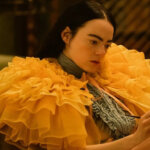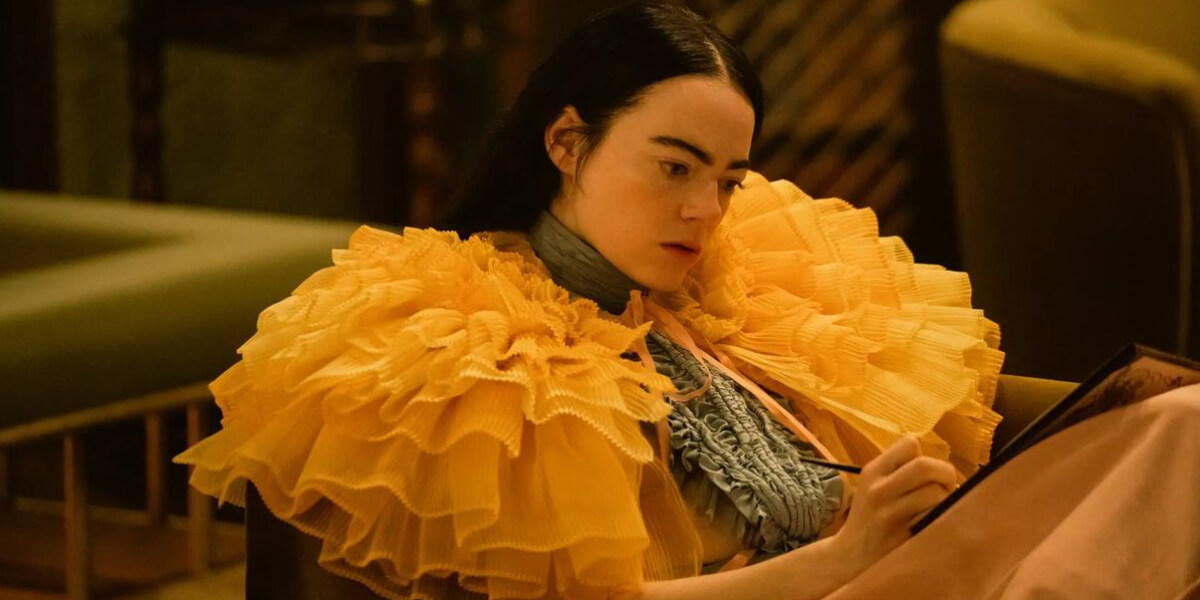Tron: Legacy’s Quorra and The Fifth Element’s Leeloo have a few things in common, even though their films are separated by 13 years. Both play supporting roles to fairly generic heroes; both are fierce and capable in battle; both have haircuts that would make the average person look incredibly stupid; and both are inexplicably wide-eyed about the world.
Jonathan McIntosh, who goes by the name Pop Culture Detective on YouTube, has posted a video exploring this trope, which he calls “born sexy yesterday”. These female characters are wise, but also strikingly naive about the world. They’re childlike, but they’re also designed to appeal to heterosexual men.
“Characters who were born sexy yesterday are often highly skilled at something that men will respect,” says McIntosh. “Often that thing is fighting.”
McIntosh, who has also worked on some videos for pop criticism site Feminist Frequency, calls this phenomenon a relationship trope. It’s not so different from the infamous Manic Pixie Dream Girl archetype. Like the MPDG, a Born Sexy Yesterday character is typically introduced by a straight, “red-blooded man” who is alone or unhappy in the love department. He’s directionless or disenchanted with his life. But in the case of Born Sexy Yesterday, the trope goes a step further, because this man, says McIntosh, “either can’t or won’t find a woman from his own world who might be his equal in matters of love or sexuality”.
The trope isn’t new, or even exclusive to science fiction. McIntosh explores its history in films such as Forbidden Planet or The Time Machine, as well as its appearance in media such as anime. The problem with the trope, he says, is that its subtext is “rooted in a deep-seated male insecurity about sex and sexuality”. The trope could be improved, he suggests, if both characters were inexperienced and exploring their identities together, or if these women were given the chance to grow in their experiences – like Star Trek: Voyager’s Seven of Nine.
“The core of the trope is a fixation with male superiority, a fixation with having power over an innocent girl,” says McIntosh. “But in order to make that socially acceptable, science fiction has taken to putting that girl’s mind into a sexualised, adult female body.”
The trope also exists in reverse. Sort of. Men who exhibit the same traits in films like Big or Blast from the Past are more often used as the butt of the joke. “Perhaps this is because most adult women don’t find the idea of dating an inexperienced adolescent boy all that appealing,” says McIntosh.
If you’ve been following some of the discourse on TikTok, or watching recent interviews with Emma Stone, you might be tempted to dismiss Bella Baxter, the character Stone plays in Yorgos Lanthimos’ Poor Things, as just another victim of the Born Sexy Yesterday trope. And it’s true that she ticks a lot of boxes, but I’d argue that the film actually deconstructs and critiques that trope.
The first and most obvious clue is how on-the-nose Bella’s origin story is. She’s not just a woman with a mature body and a childlike intellect; she’s literally an adult woman who’s had the brain of a fetus transplanted into her head. What this tells us is that Lanthimos and Stone, who was a producer on Poor Things, aren’t just aware of the trope – they explicitly make it their playground. Perhaps the most poignant thing they have to say about Born Sexy Yesterday is that, in practice, it just doesn’t work. Hell, it even malfunctions!
In keeping with the trope, Bella is created to be easy to control and impress, while also being imbued with sexuality by virtue of her adult body. But the men around her never get the things they created her for, because Bella is uncontrollable from the start.
We get the first hint of this when Max McCandles, Godwin Baxter’s apprentice, admires Bella’s beauty, only for her to urinate on herself and the floor at the same time. She’s both desirable and undesirable. She doesn’t have the vocabulary to have meaningful conversations, and she takes things literally because she doesn’t understand social nuances, which is why she blurts out inappropriate thoughts at inappropriate times. So while she’s beautiful to look at, her growing mind and the independent will it inevitably instils in her create a huge barrier between the men in her life and what they want to use her for.
Lawyer Duncan Wedderburn is literally driven mad by his inability to contain Bella. He first meets her after Godwin has arranged for Max to marry Bella – without her consent, of course – and hires Duncan to essentially keep Bella legally trapped in the marriage. After Duncan and Bella meet, she tells Godwin that she’ll agree to the marriage, but first she has to sow her wild oats with Duncan on a trip around Europe.
Duncan’s plan for the trip is clear – he’ll use Bella until he gets bored, and then he’ll move on. What he doesn’t count on is that Bella has an agenda of her own, and it’s not entirely compatible with his. She wants to learn about the world and see things beyond her backyard. But because she doesn’t understand how the adult world works, she doesn’t understand that satisfying her sexual appetite with someone other than Duncan might hurt his feelings, or at least break some rules in their relationship that, to be fair, she’s not aware of. What’s interesting is that in many ways she’s behaving like Duncan would – he just didn’t expect it to be done to him.
Predictably, Duncan reacts to Bella’s transgression by trying to isolate her on a cruise ship. But things only get worse for him when a fellow passenger gives Bella books to read. As she expands her intellect, she realises how dull Duncan is, and she’s prepared to tell him so to his face.
Over the course of his brief relationship with Bella, Duncan’s demeanour changes from commanding and confident to weak and inept. At the same time, his downfall is entirely his own fault. He never really listened to Bella or asked her to explain the strange things she said that he didn’t understand. She was just a sexual conquest to him, but because he never took an interest in who she was, he was unprepared for who she turned out to be.
Meanwhile, when Godwin and Max try to replicate the Bella experiment with Felicity, the results are equally unpredictable. Felicity is kind of dumb, and not as enraptured by the many wonders of the world as her prototype Bella was. And you would think that Godwin and Max would, in theory, prefer to create a woman who doesn’t absorb information as quickly as Bella, but it turns out that what they liked about Bella was also what made her impossible to regulate.
Time and again, “Poor Things” proves that “Born Sexy Yesterday” just doesn’t pay off. Least of all for those who stand to benefit from it – namely the men, who, once they realise they can’t control women with science or big boats, are thrown into debilitating existential crises (or turned into goats).
Meanwhile, Bella becomes smarter, more sexually fulfilled and eventually wealthy. She even manages to arrange a lovely little polycule with her lovers Toinette and Max. Was Bella Baxter born sexy? Yes, but she still won.




























